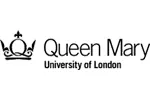

the United Kingdom
Queen Mary, University of London (QMUL)| The award | How you will study | Study duration | Course start | Domestic course fees | International course fees |
|---|---|---|---|---|---|
| MSc | Full-time, Part-time | 1 - 2 year | September | GBP 9250 per year | GBP 19500 per year |
There are a number of sources of funding available for Masters students.
These include a significant package of competitive Queen Mary University of London (QMUL) bursaries and scholarships in a range of subject areas, as well as external sources of funding.
Students from outside of the UK help form a global community here at Queen Mary. For detailed country specific entry requirements please visit the International section of our website. If your first language is not English, you must provide evidence of your English language proficiency.
Below are some suggested courses at other providers that you may also be interested in:
Music (Popular, Contemporary & Commercial) BA (Hons)
The Liverpool Institute for Performing Arts (LIPA)
Find out moreIf you do not meet the entry requirements for this course then consider one of these postgraduate preparation courses from another institution:
Graduate Diploma of Engineering (Electrical Systems)
Engineering Institute of Technology
Find out moreGraduate Diploma in Educational Studies (Educational Psychology)
The University of Sydney
Find out moreThere are 516 other courses listed from Queen Mary, University of London (QMUL). A selection of these are displayed below:
Accounting and Management with Integrated Foundation Year BSc (Hons)
Queen Mary, University of London (QMUL)
Find out moreAdvanced Electronic and Electrical Engineering MSc
Queen Mary, University of London (QMUL)
Find out moreAdvanced Electronic and Electrical Engineering with Industrial Experience MSc
Queen Mary, University of London (QMUL)
Find out moreJoin the Сưłć´«Ă˝ email list and never miss a chance to turn your study abroad dreams into reality!

See other universities in London
Find out more about studying in the United Kingdom